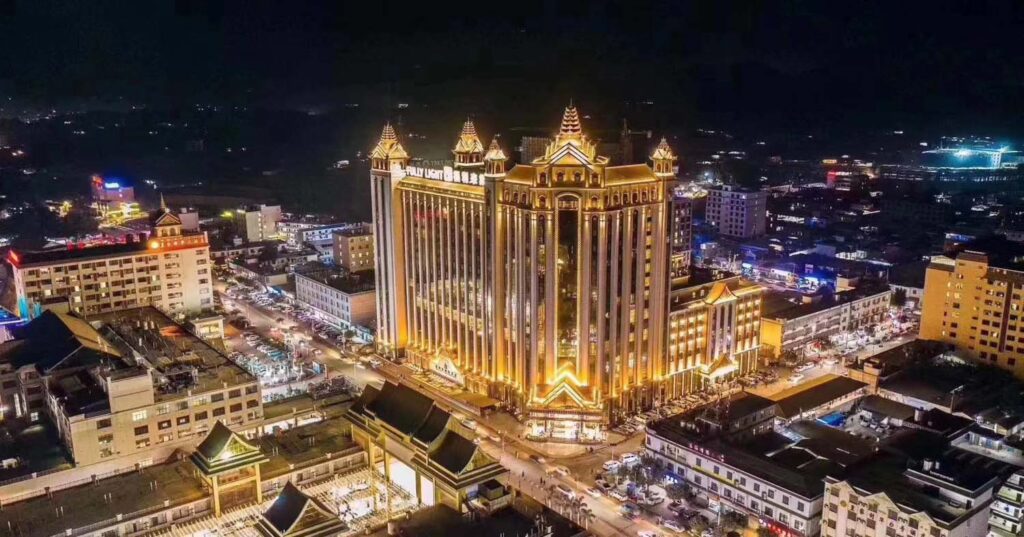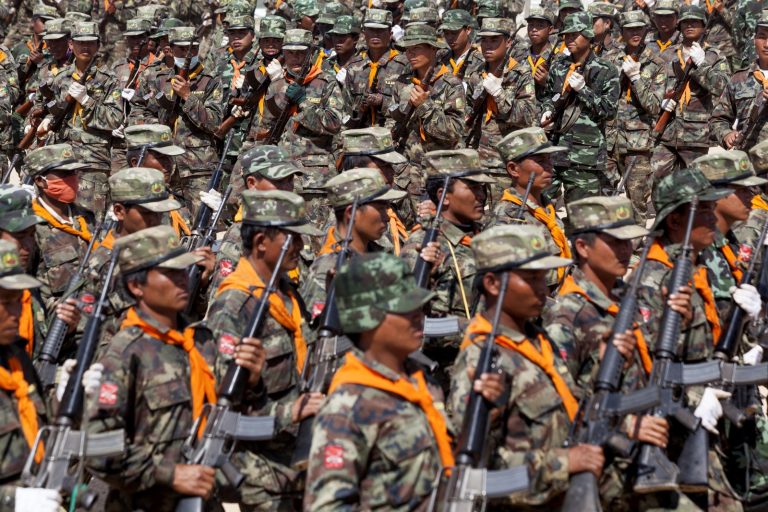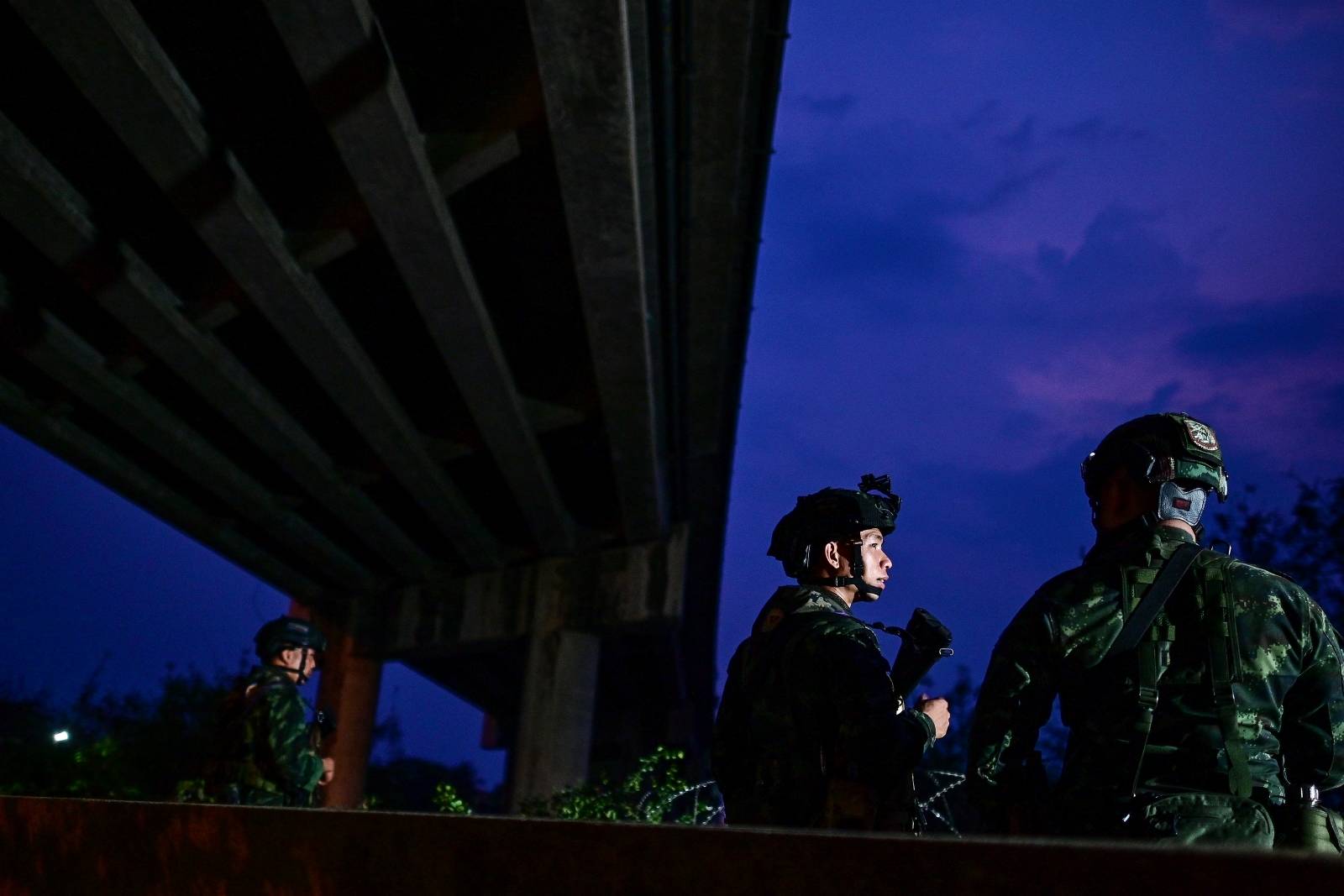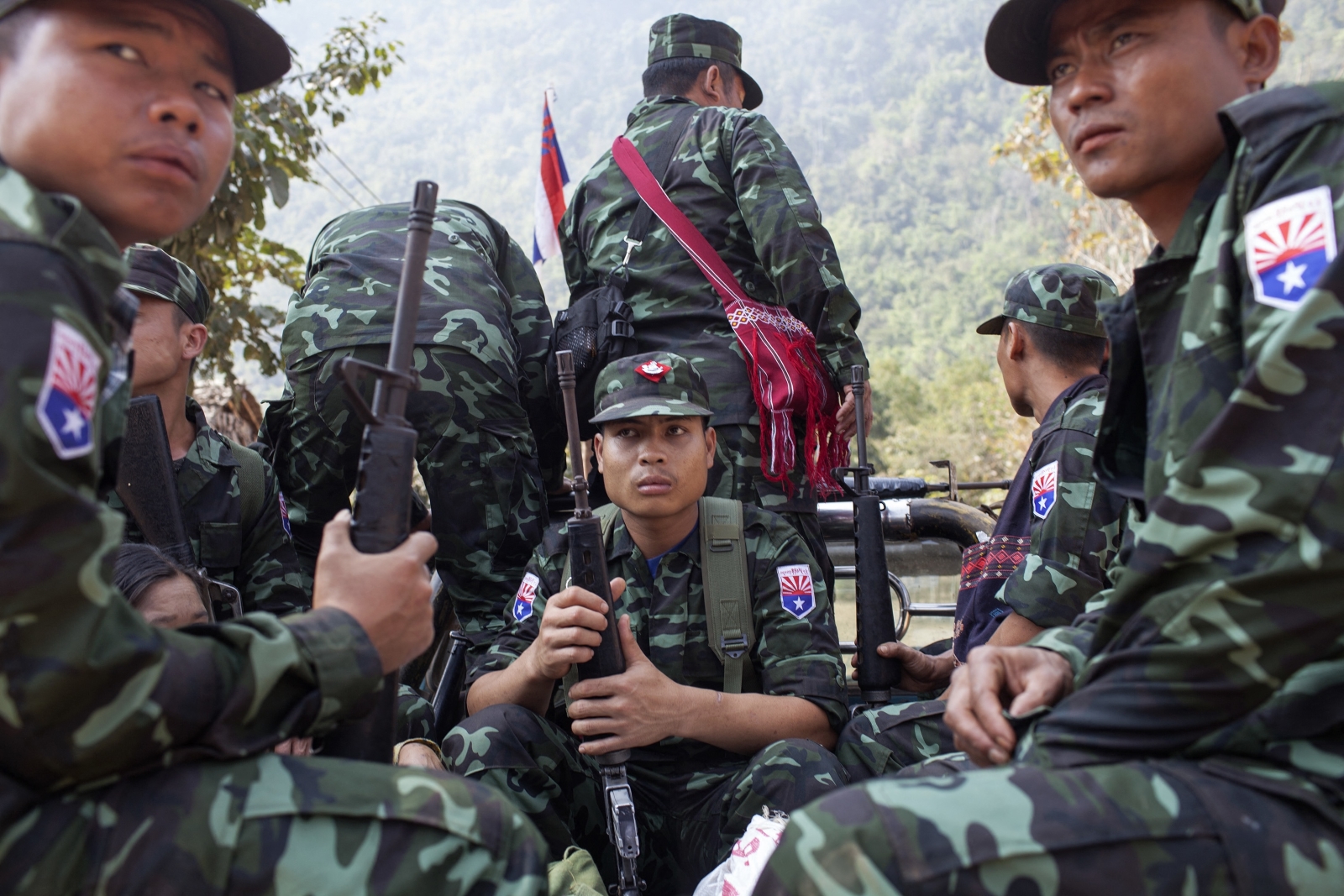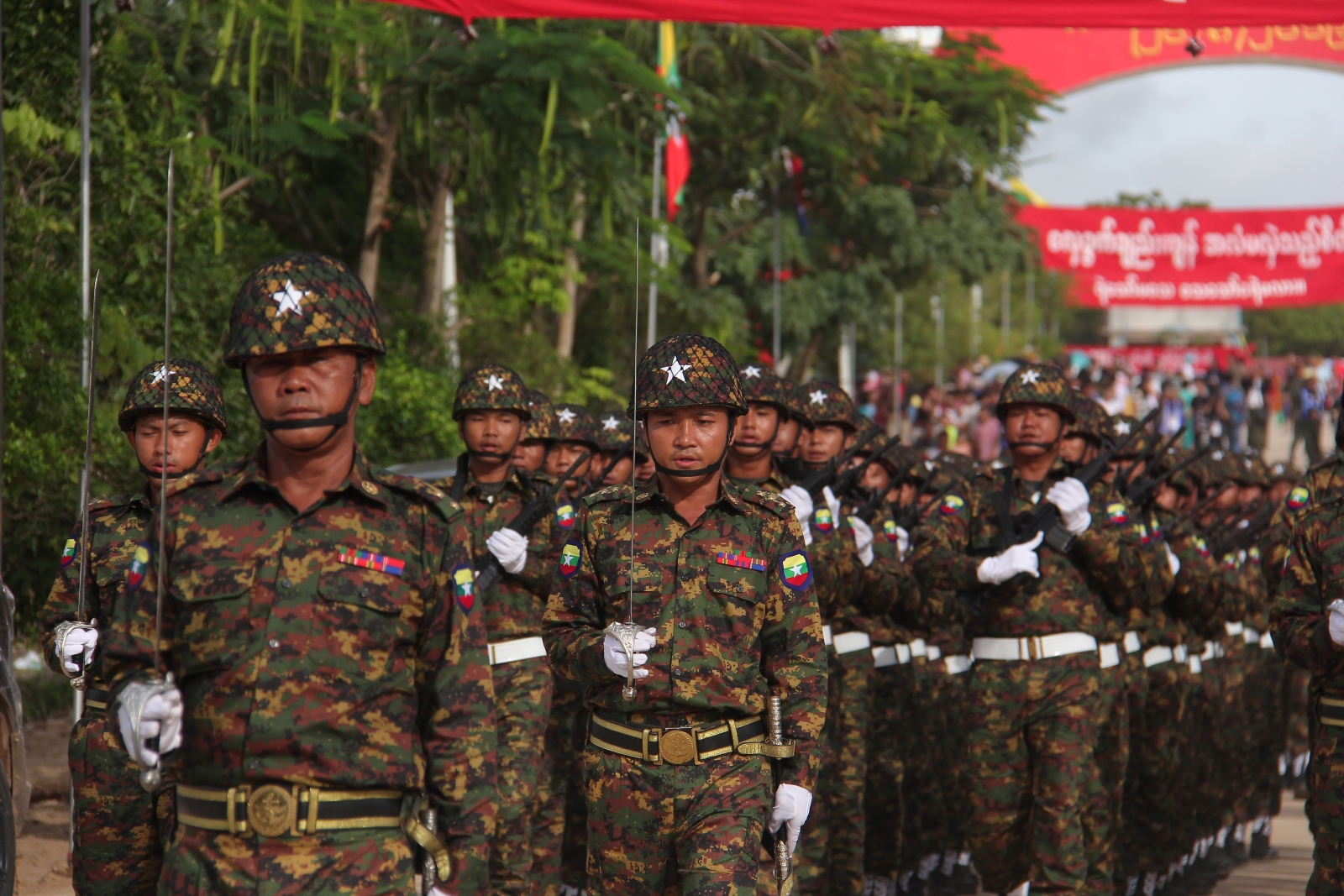By AFP
Laukkai, a town in northern Myanmar notorious for gambling, prostitution and cyber scams, is emptying out as war approaches, prompting thousands of residents to flee.
Ethnic armed groups last month launched an offensive against the military across northern Shan State, capturing several towns in what analysts say is the biggest challenge to Myanmar’s ruling junta since it seized power in 2021.
Long caravans of people are now snaking out of the lawless town of Laukkai, sleeping rough in the rugged hills near the border with China as the armed alliance closes in.
“We could see artillery shells passing over our heads,” said Ko Aung Aung, a construction worker who fled the town last week, after his employer ran out of food thanks to soaring prices.
“After about two weeks (of nearby fighting), they couldn’t provide food because things got very expensive,” he told Agence France-Presse by phone, requesting that he be identified with a pseudonym.
Ko Kyaw Kyaw, a car mechanic who also asked AFP to withhold his real name, joined the exodus around the same time, hoping somehow to make the journey of hundreds of kilometres back to his home city of Mandalay.
“Hundreds of people were stuck and sleeping on the roadside,” he said.
Three people were injured by artillery shells fired from Laukkai, he said, as the military pounded the region with airstrikes last week.
“We even felt the ground shaking. People were very scared.”
Sin City
Junta chief Senior General Min Aung Hlaing made a name for himself in Laukkai in 2009 when, as a regional commander, he expelled the Myanmar National Democratic Alliance Army, one of the armed groups belonging to the Three Brotherhood Alliance, along with the Ta’ang National Liberation Army and Arakan Army, that is now closing in on Laukkai.
The military installed a militia, the Kokang Border Guard Force, that got rich producing drugs and selling a potent cocktail of gambling and sex to visitors from across the Chinese border.
Access to the remote town is tightly controlled, but an AFP correspondent who visited under militia rule a decade ago described rival gangs making arrests at gunpoint on streets overshadowed by towering casinos full of Chinese gamblers.
The boom times attracted migrant workers such as Kyaw Kyaw, who said he had been earning around US$400 a month as a car mechanic before he decided to flee.
Brothels and drugs abounded on the streets but newcomers like him were told to keep a safe distance from the latest illicit industry to blossom in Laukkai – online scam compounds.
The centres are staffed by thousands of trafficked citizens from China and other countries who are forced to work swindling their compatriots online, analysts say.
The scammers groom potential victims for weeks before cajoling them into ploughing money into fake investment platforms and other ruses.
The United Nations said this year that at least 120,000 people could be trapped in scam compounds in Myanmar.
The scams anger China, a major ally and arms supplier of the junta, and Beijing has repeatedly asked Myanmar’s military to crack down on them.
But Kyaw Kyaw suspects that “about 40” buildings of around four storeys in Laukkai are still being used as scam compounds.
“Those who worked at online scams cannot leave the compound. We also cannot go to those compounds because those were guarded by militia members,” he told AFP.
‘Can’t wait to get home’
After fleeing the town he and other former residents reached a village held by fighters from the MNDAA.
The fighters handed them over to the United Wa State Army – a powerful ethnic armed group that has stayed out of current fighting – which provided food and trucks to transport them further south away from the violence.
But the UWSA fighters made those fleeing leave behind their phones and other possessions, according to the two people AFP interviewed.
“We only had our clothes,” said Aung Aung. “People didn’t dare say anything.”
AFP has not been able to independently verify the men’s accounts.
After a four-day journey by foot and truck, Aung Aung reached Mongyang in eastern Shan.
There, he said he was handed over to Myanmar’s military and joined roughly 2,000 people sleeping on the ground, many of them sick from the arduous trek.
But he said he was thankful to be away from the fighting that is spreading across Myanmar and has displaced more than 200,000 people, according to the UN.
On Tuesday the MNDAA said its fighters had surrounded Laukkai and that it would hand over any captured scam bosses to Chinese authorities.
Also waiting in Mongyang, Kyaw Kyaw said he didn’t know when he would be able to get home to Mandalay – still hundreds of kilometres away.
“My savings are all gone now,” he told AFP. “I can’t wait to get home.”


